
Afrobeat is a Nigerian music genre, fusing influences from Nigerian with American funk, jazz, and soul influences. With a focus on chanted vocals, complex intersecting rhythms, and percussion, the style was pioneered in the 1960s by Nigerian multi-instrumentalist and bandleader Fela Kuti, who popularised it both within and outside Nigeria. At the height of his popularity, he was referred to as one of Africa's most "challenging and charismatic music performers."

Fela Aníkúlápó Kútì was a Nigerian musician and political activist. He is regarded as the principal innovator of Afrobeat, a Nigerian music genre that combines West African music with American funk and jazz. At the height of his popularity, he was referred to as one of Africa's most "challenging and charismatic music performers". AllMusic described him as "a musical and sociopolitical voice" of international significance.

Robert Thomas Christgau is an American music journalist and essayist. Among the most well-known and influential music critics, he began his career in the late 1960s as one of the earliest professional rock critics and later became an early proponent of musical movements such as hip hop, riot grrrl, and the import of African popular music in the West. He was the chief music critic and senior editor for The Village Voice for 37 years, during which time he created and oversaw the annual Pazz & Jop critics poll. He has also covered popular music for Esquire, Creem, Newsday, Playboy, Rolling Stone, Billboard, NPR, Blender, and MSN Music; he was a visiting arts teacher at New York University. CNN senior writer Jamie Allen has called Christgau "the E. F. Hutton of the music world–when he talks, people listen."

Olufela Olufemi Anikulapo Kuti, popularly known as Femi Kuti, is a Nigerian musician born in London and raised in Lagos. He is the eldest son of Afrobeat pioneer Fela Kuti and a grandchild of political campaigner, women's rights activist and traditional aristocrat Funmilayo Ransome-Kuti.
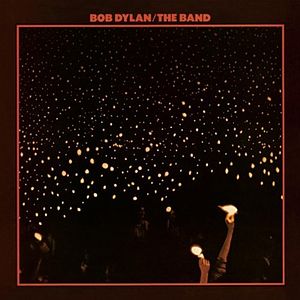
Before the Flood is a live album by American singer-songwriter Bob Dylan and The Band, released on June 20, 1974, on Asylum Records in the United States and Island Records in the United Kingdom. It was Dylan's first live album, although live recordings of earlier performances would later be released. It is the 15th album by Dylan and the seventh by the Band, and documents their joint 1974 American tour. It peaked at No. 3 on the Billboard 200, reached No. 8 on the popular album chart in the UK, and has been certified Platinum by the Recording Industry Association of America.

Pazz & Jop was an annual poll of top musical releases, compiled by American newspaper The Village Voice and created by music critic Robert Christgau. It published lists of the year's top releases for 1971 and, after Christgau's two-year absence from the Voice, each year from 1974 onward. The polls are tabulated from the submitted year-end top 10 lists of hundreds of music critics. It was named in acknowledgement of the defunct magazine Jazz & Pop, and adopted the ratings system used in that publication's annual critics poll.
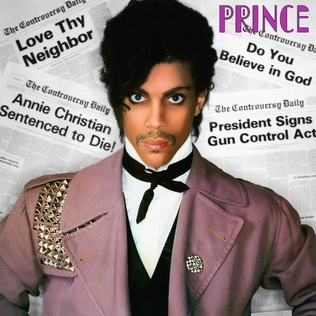
Controversy is the fourth studio album by the American singer-songwriter and musician Prince, released on October 14, 1981, by Warner Bros. Records. It was produced by Prince, written by him, and he also performed most of the instruments on its recording.

Tony Oladipo Allen was a Nigerian and French drummer, composer, and songwriter who lived and worked in Paris, France. Allen was the drummer and musical director of Fela Kuti's band Africa '70 from 1968 to 1979, and was one of the founders of the Afrobeat genre. Fela once stated that "without Tony Allen, there would be no Afrobeat". He was described by Brian Eno as "perhaps the greatest drummer who has ever lived". Later in life, Allen collaborated with Damon Albarn on several projects, including Gorillaz, the Good, the Bad & the Queen and Rocket Juice & the Moon.
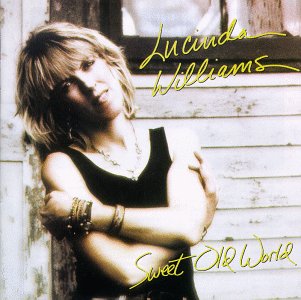
Sweet Old World is the fourth studio album by American singer-songwriter Lucinda Williams, released on August 25, 1992, by Chameleon Records.

Dancing in Your Head is a studio album by Ornette Coleman, released in 1977 by Horizon Records.
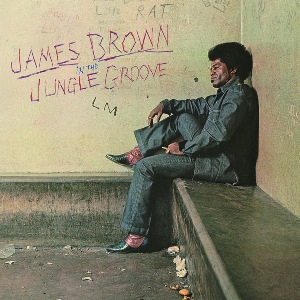
In the Jungle Groove is a compilation album by American funk musician James Brown, released in August 1986 by Polydor Records.

Pangaea is a live album by American jazz trumpeter, composer, and bandleader Miles Davis. It was originally released as a double album in 1976 by CBS/Sony in Japan.
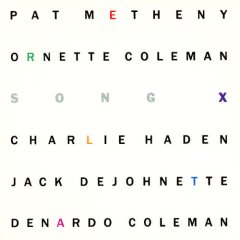
Song X is a collaborative studio album by American jazz guitarist Pat Metheny and saxophonist Ornette Coleman. It is a free jazz record that was produced in a three-day recording session in 1985. The album was released in 1985 by Geffen Records.
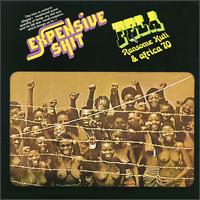
Expensive Shit is the twelfth full-length album by pioneering Afrobeat artist Fela Kuti and his Africa '70 band, released in 1975. It was reissued in 2000 by MCA Records, packaged with Kuti's He Miss Road (1975) on the same CD.

Zombie is a studio album by Nigerian Afrobeat musician Fela Kuti. It was released in Nigeria by Coconut Records in 1976, and in the United Kingdom by Creole Records in 1977.

Knitting Factory Records is an independent American music label that is notable for promoting a variety of artists, including the music of deceased Nigerian political activist Fela Kuti. The label promotes a variety of music artists including Ages and Ages, Ash Black Bufflo, Cuong Vu, Graham Haynes, Femi Kuti, Gary Lucas, Lumerians, Thomas Chapin, Patrolled By Radar, Joe Morris, Rachid Taha, Seun Kuti, and Shilpa Ray and her Happy Hookers.

The Birth of Soul: The Complete Atlantic Rhythm and Blues Recordings is a 3-CD box set compilation by Ray Charles, released in 1991.
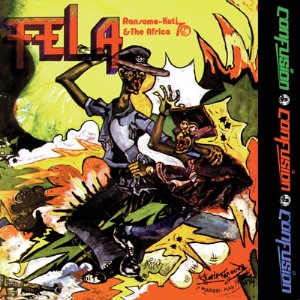
Confusion is a 1975 album by Nigerian Afrobeat musician Fela Kuti and his Africa 70 band. It was arranged, composed, and produced by Kuti, who recorded the album after choosing to emphasize his African heritage and nationalism in his music. Confusion is a commentary on the confused state of post-colonial Lagos and its lack of infrastructure and proper leadership at the time. Kuti's pidgin English lyrics depict difficult conditions in the city, including a frenetic, multilingual trading market and inextricable traffic jams in Lagos' major intersections.
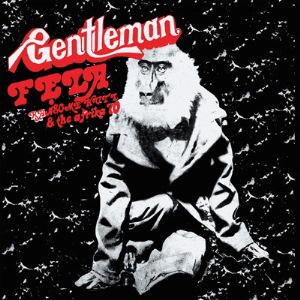
Gentleman is a 1973 studio album by Nigerian Afrobeat musician Fela Kuti. It was written and produced by Kuti and recorded with his Afrika 70 band. The cover artwork's depiction of a monkey's head superimposed on a suited body is a reference to the album's title track, which Kuti composed as a commentary on the colonial mentality of Africans who adhered to European customs and clothing.

Ocean of Sound is a 1996 compilation album compiled and produced by English musician and author David Toop. The two-disc, cross-licensed "various artists" compilation contains 32 tracks culled from a variety of musical sources, including dub, exotica, free jazz, and field recordings. Toop compiled the recordings to serve as both a historical survey of ambient music and an aural companion to his 1995 book Ocean of Sound: Aether Talk, Ambient Sound and Imaginary Worlds.






















